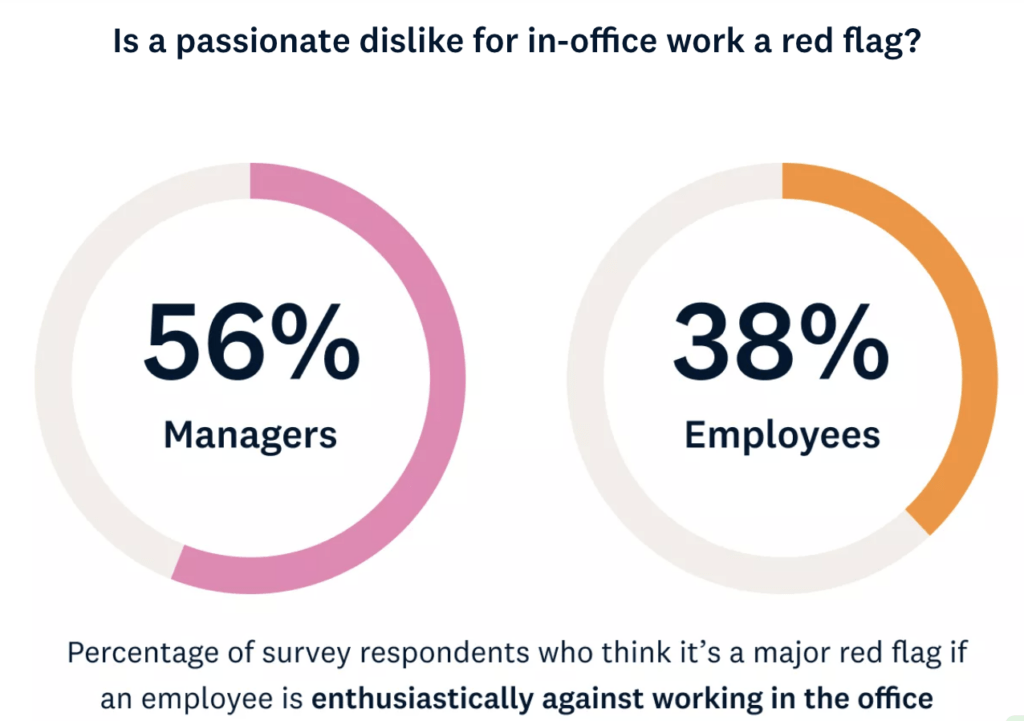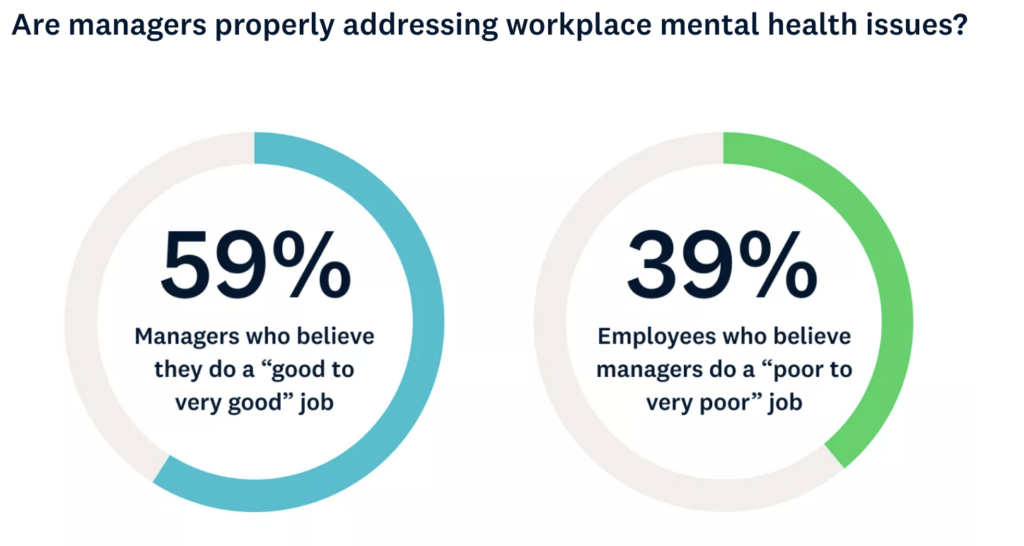
The 2023 workplace landscape exhibited a notable divergence in perspectives between managers and employees, whether through ideas related to remote work policies, communication strategies, and work-life balance.
Checkr, an HR technology company, surveyed over 3,000 American employees and managers – an equal number of employees and business leaders in management positions- to understand the most pivotal workplace issues as 2024 approached.
The divide between managers and employees underscores the critical need for improved communication, empathetic leadership, and collaborative decision-making, Checkr said in a statement.
“Bridging this gap became imperative as managers struggled to foster a cohesive work environment while ensuring that both managers and employees were heard, adequately supported, and aligned in navigating the evolving challenges of the modern workplace,” they explained.
The firm asked the participants if they thought that managers would prefer all employees to be in the office because supervising people in person would be easier. The findings showed that 70% of managers agree with the statement, while a lesser 63% of employees echo that statement.

Participants were asked if a Return To Office (RTO) policy would affect whether employees would leave the company, 58% of managers said they agreed while only 47% of employees surveyed felt the same way.
There are 52% of management and 48% of employees who prefer four-day workweeks over high salaries in 2024.
Both Management and employees are aligned regarding the work-life balance and boundaries, they believe it needs to improve in 2024.
According to Checkr’s finding, managers “act” like they support mental health but workers disagree. Of those who were surveyed, 59% of managers believe they do a good to very good job addressing mental health while 39% of employees think managers do a poor to very poor job.

While companies are facing a major issue of burnout 41% of the surveyed managers admit to not caring about the mental health and well-being of employees in favor of a work-only focus, and 48% of employees echo that statement.
Nonetheless, only 59% of management believes they will increase their investment in mental health programs in 2024, and just 40% of employees think that will actually happen.